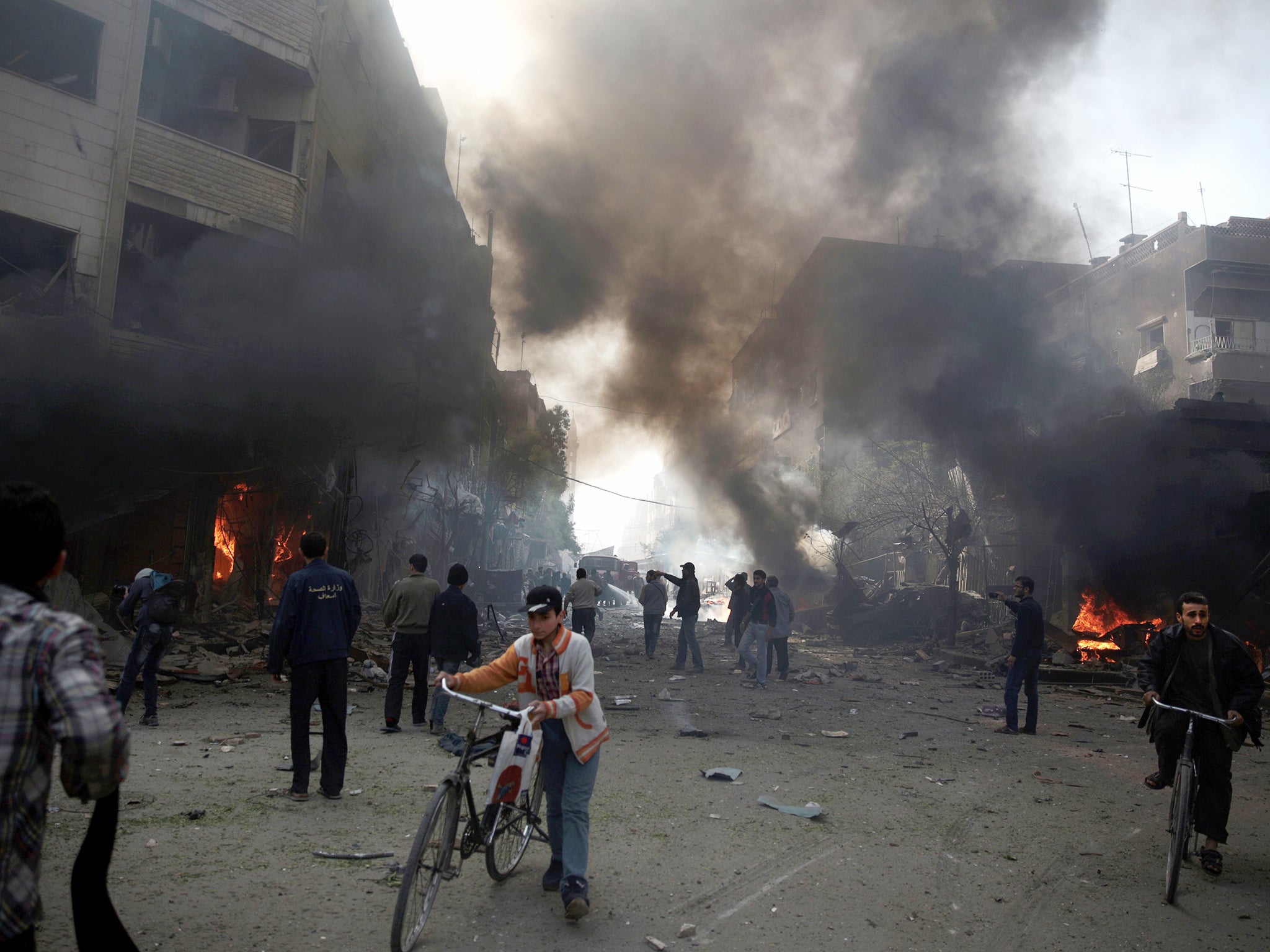From the school gates to armed groups, this is how Syrian children are turned into the next generation of Isis fighters
In order to take examinations, at least 20 per cent of children in Syria have to cross active conflict zones. But prior to the civil war, attendance rates were more than 90 per cent

Prior to the civil war, Syria had more than 90 per cent attendance rates in schools. Since then, 47 specific attacks on schools were recorded last year alone - and there have been more than 4,000 assaults on school property since the Syrian crisis began almost five years ago. Unicef states that currently there are 2.8 million children out of school in Syria and surrounding areas.
Schools are dangerous places to congregate in war. They are specific targets for armed groups, both militarily and for propaganda purposes, because they are in populated areas and have a high profile in society or religious affiliations.
In Syria, one in four schools cannot be used because they have been damaged, destroyed, or are being used as shelters for internally displaced people or for military purposes. In order to take examinations, at least 20 per cent of children have to cross active conflict zones.
As a result of bombardments or fear of attack, children do not attend schools and thus experience a lack of purpose, routine and social interaction with peers. This often means that they end up enrolling in armed groups, which are regular, social and provide a source of income.
Within these armed groups, children at first perform indirect support functions such as carrying substantial loads, spying or acting as lookouts. However, their roles swiftly evolve into ones at the centre of battle. They are offered arms to ‘solve’ the crisis; suicide belts to make martyrs of themselves; and husbands or wives to produce the next generation of jihadi fighters.
The use of children is of benefit to militias as they are considerably cheaper than adults, consuming less food and demanding less pay. The immaturity of these young recruits is also of great advantage. Indeed, children are deemed crucial in the art of war and an exploitable resource of almost unlimited supply. It is absolutely worthwhile for the armed groups to hinder their access to formal education. Subsequently, the cycle continues: schools are attacked, children are left vulnerable, and armed groups grow.
These children aren’t just being educated in the acts of war and used to perpetuate a conflict over further generations. They’re also being deliberately taken away from any alternative source of instruction or empowerment. Schools are well-placed structures to inform children about reconciliation. Curriculums can educate children about previous conflicts that have ended peacefully.
These institutions transmit essential skills and life-saving information, such as how to stay safe by avoiding landmines. They can be used as agents of peace, encouraging social interaction, national belonging and diplomacy. Additionally, education in emergencies provides psychological healing for children traumatised by violent experiences.
In areas under the control of Isis, the very nature of education has been abused to indoctrinate children into their practices. In fact, it is a central cog in their approach to acquiring rule. Through enrolling children from a young age in Isis-curriculum schools or training camps - and thus exposing them to a venomous ideology that teaches only how to fight, attack and kill - children are led to believe that the Isis approach is merely the status quo.
Not only do they therefore lose the clear benefits of real education, but, on a far more profound level, this generation of children are raised with little to no experience of the freedoms of childhood.
All children learn, whether it happens in a conventional building with instruction in traditional subjects, or whether it happens in an armed militia with an AK47 in hand.
Escaping instruction by arms – and regaining the right to an education that offers choice – will be imperative in helping the next generation of Syrians to reclaim their country.
Join our commenting forum
Join thought-provoking conversations, follow other Independent readers and see their replies
Comments
Bookmark popover
Removed from bookmarks